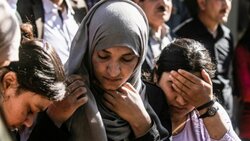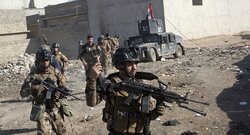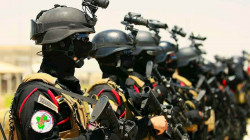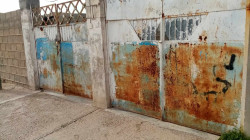Security challenges mount as Iraq faces surging budgets and tribal conflicts
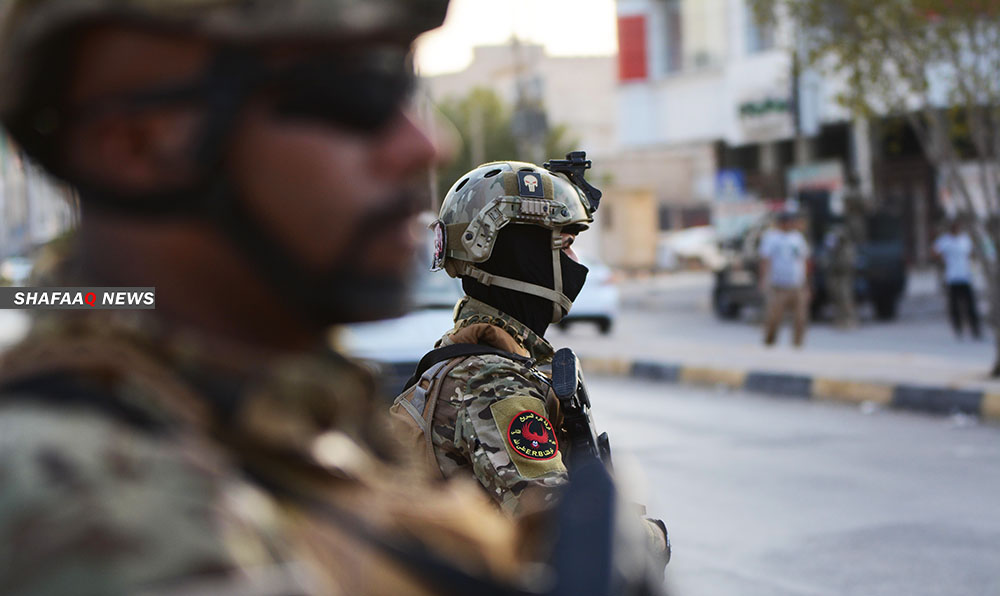
2024-03-20T11:47:57+00:00
Shafaq News/ In Iraq, annual expenditure statements unveil a significant uptick in budgets allocated to security ministries to fulfill "indispensable needs" in contrast to other ministries, as per studies and specialized sources.
Security analysts emphasized the "complexities" entwined with this rise, pointing out the presence of the Popular Mobilization Forces (PMF) as a 'coexistent military entity." They also caution against the depletion of security capacities, including personnel and ranks, during armed "criminal" c00onfrontations occurring intermittently across the nation.
According to the annual Global Firepower review for 2024, the Iraqi army was ranked 45th globally among the world's strongest armies and 21st in the Middle East; additionally, within the Arab region, it secured the fourth position.
Notably, the construction of Iraqi security forces heavily relies on personnel numbers, consuming a significant portion of their budgets. This trend occurs amid a shift in focus from the "terrorist" aspect, now referred to by the Ministry of Interior as "martyrs of civil peace," towards addressing armed tribal conflicts.
Security Agency Personnel Figures
According to a 2023 report from the Middle East Eye (MEE), the Iraqi Ministry of Defense saw a 25,000-person increase in soldiers and employees between 2021 and 2023, totaling 450,000 personnel.
Simultaneously, the Ministry of Interior's personnel expanded by 22,250 individuals, culminating in a force of 700,000 police officers.
Moreover, the Popular Mobilization Forces experienced a remarkable increase, recruiting 116,000 combatants during that timeframe, amassing a total strength of 238,000 fighters, positioning it as the nation's third-largest armed force with a budget of 3.56 trillion Iraqi dinars ($2.7bn).
A report by the Iraqi Analyst Ameer al-Kaabi and military expert Michael Knights for the Washington Institute on June 6, 2023, citing the Iraqi Parliament Finance Committee's April 17, 2023 report, highlighted a 95% increase in human resources within the Popular Mobilization Forces in the 2023 budget, nearly doubling the number of fighters from 122,000 to 238,000.
However, according to the report, Falih Alfayyadh, the head of the Popular Mobilization Authority, "disputed this number in an April 18 interview with UTV, claiming that "the force's manpower had increased from 170,000 in 2021 (the last authorized budget before this one) to 204,000—which is still a sizeable 20% year-on-year increase (in comparison, the Defense Ministry's manpower is set to be increased by 6% and the Interior Ministry's by 3%)."
Government-submitted budget project documents for 2023 indicate that the Popular Mobilization Forces comprise half the size of the regular army, while Ministry of Interior-affiliated security forces are approximately three times larger than the Popular Mobilization Forces.
The report forecasts a 23% budget increase for the Popular Mobilization Forces in 2024 and 2025, indicating continued growth in the coming years.
The force's budget is also growing, albeit not as fast as its membership. From $2.16 billion in the 2021 budget, it will rise to $2.6 billion in the 2023-2025 budget, a 23% increase. This is lower than the 40-95% increase in manpower, probably because some of the additional registered personnel members were previously carried within the budget as unregistered part-timers." The report at WI said.
Expenditure Bill of Security Ministries 2019-2023
According to a 2023 report by the Iraq Future Foundation (IFF), the bill for salaries in Iraq experienced a significant increase from 2019 to 2023, rising by an additional 7 trillion Iraqi dinars (about $5.3 billion). This substantial rise underscores the growing financial burden faced by the government, with the total salaries bill reaching 47 trillion Iraqi dinars (about $36 billion), a notable increase from the 2019 figure of 40 trillion Iraqi dinars (about $30.5 billion)."
The IFF report highlighted that ministries such as Interior and Defense, alongside the cabinet and associated entities, accounted for 50% of the total salaries, amounting to 25 trillion dinars (about $19 billion,) which represented a notable increase of 6 trillion dinars (about $4.5 billion) from 2019, when it was valued at 19 trillion Iraqi dinars (about $14.5 billion.).
The Security Infrastructure in the Tripartite Budget
The American University of Iraq-Sulaimani's 2023 report provided a comparative analysis of current and past budgets, indicating Iraq's prioritization of the security sector over healthcare and education.
The report highlighted that the budget for 2023-2025, encompassing both direct and indirect spending on healthcare and education within relevant ministries, reveals that investments in security infrastructure are 156% larger than those for healthcare and education infrastructure.
The expenditures, which include salaries, pensions, social security, and other operational expenses, have increased by 9%.
Furthermore, focusing on current expenditures, the report noted a 28% increase in spending on salaries within the security sector.
When considering both current and investment expenditures, the security sector received a 17% larger allocation in the overall budget. Moreover, there was an 11% rise in civil servants employed in the health and education sectors.
The report also emphasized that the average salary in the security sector is 44% higher than in healthcare and education, contributing to the perception that a significantly larger portion of the budget is dedicated to security rather than healthcare and education.
Resources of Security Agencies and PMF
The allocation and utilization of resources within Iraq's security sector have raised concerns among experts, as highlighted by security expert Ahmed Al-Sharifi.
Security expert Ahmed Al-Sharifi expressed concerns about allocating and utilizing resources within Iraq's security sector. He emphasized that the inefficient deployment of financial allocations, personnel, and equipment essential for carrying out the constitutional duties of the Ministries of Interior and Defense could leave Iraq vulnerable and dependent on neighboring countries, particularly in economic matters and managing fragile fronts.
"We are spending a significant amount of money on the capacity of human resources," Al-Sharifi explained, emphasizing the importance of modern military concepts prioritizing quality over quantity, focusing on combat skills and physical fitness enhanced by advanced technologies.
Al-Sharifi believes that "Iraq lacks the theory of a smart army, and therefore when ISIS entered Mosul, we lost because partisan loyalty penetrated the institution. Also, political interference was present in hindering tasks and functional roles, allowing ISIS to acquire $28 billion in armament capabilities. The irony is that these capabilities, which were provided to the army and police, turned against Iraqis."
Al-Sharifi pointed out that "military experts agree that the conditions for building a secure individual were not often met, as appointments were made based on party loyalty or for electoral purposes. Thus, we lost diversity, loyalty, and standards," noting that "quantity density in terms of numbers is not beneficial in the field. The evidence is that we still need the international coalition and the Americans."
Al-Sharifi noted the impossibility of "determining expenditure ratios due to the presence of one army and another parallel army," explaining that "before ISIS entered, there were armed wings for parties that relied on security and military efforts. They were not monitored and were not restricted in the institution's records. We don't know how they train, arm, and impose themselves on institutions with fictitious names."
Regarding the period after ISIS and the emergence of the Popular Mobilization Forces (PMF), Al-Sharifi said, "There is now a parallel army. With the presence of two armies, it has become difficult to verify the data of the parallel army, its members, ranks, armament capabilities, and expenditure ratios because we have a military institution and a quasi-military one."
The expert pointed out that "the PMF has a separate budget, and its functional roles have not been defined. This makes it very difficult to provide expenditure ratios in the military institution because the expenditure is allocated to the Ministry of Defense with a specific amount and to the PMF with another amount."
He explained that "financial entitlements in the Ministry of Defense are higher because its armament capabilities require higher maintenance ratios. For example, an F-16 aircraft needs about $350 million annually for maintenance, rehabilitation, and sustainability. It's a high-cost aircraft, and the ministry's budget is not enough for that."
Loss of Security Capabilities and "Civil Peace Martyrs"
Iraq faces not only the challenge of combating terrorism but also the loss of security personnel and ranks annually due to conflicts and criminal attacks, including tribal disputes and confrontations with drug traffickers and users.
One notable incident occurred this March in Dhi Qar Governorate, southern Iraq, where a major tribal conflict erupted, resulting in the death of Brigadier Aziz Shallal, Director of Intelligence.
Interior Minister Abdul Amir Al-Shamari posthumously promoted Shallal to Major General, naming him "Martyr of Civil Peace."
Addressing the deteriorating security situation, Al-Shamari announced the Ministry of Interior's intention to "use force to maintain public order and combat tribal conflicts."
Security and strategic expert Sarmad Al-Bayati underscored the hurdles in executing measures concerning addressing armed civilians, citing 'ineffective law enforcement' as a primary concern.
Al-Bayati told Shafaq News about the need for "strict enforcement of sanctions without intermediaries to punish wrongdoers and restore state authority."
In this regard, Brigadier Muqdad Miri, spokesman for the Ministry of Interior, noted that security personnel are exposed to such risks as part of their duties to maintain security.
"Measures such as a control campaign on loose weapons have been launched to protect society and reduce violence, with recent military operations in Dhi Qar Governorate aimed at seizing weapons and curbing tribal weapon control," he said.
"loose" weapons Control
The proliferation of "loose" weapons in Iraq poses a significant challenge to security and stability in the country, impacting societal safety.
Iraqi Prime Minister Mohammed Shia al-Sudani has vowed in his government program to "eradicate" this phenomenon outside the purview of official and legitimate state institutions.
While there is no official tally of the number of weapons in Iraqi society, estimates suggest a range between 13 and 15 million pieces of medium and light firearms.
Among the most prevalent are Kalashnikov rifles, PKC, and RPG-7 weapons, alongside Howitzer cannons and RPG grenades, notably used in recent tribal conflicts across the southern and central regions of the country.
Various armed groups and tribes within Iraq hold the bulk of these weapons. Additionally, Iraqi citizens often keep firearms in their households, reflecting a post-2003 cultural trend, as they feel compelled to protect themselves against potential threats from thieves and anticipated attacks.
Addressing the persistent challenge of loose weapons in Iraq, the government has launched a bold initiative known as "Centralizing Weapons in State Hands" to regulate firearm ownership and enhance national security.
Spearheaded by the Ministry of Interior, this comprehensive plan aims to regulate and purchase citizens" weapons, addressing a critical issue that poses threats to national security and societal well-being.
The new project aimed at "Centralizing Weapons in State Hands," involving the purchase of weapons from Iraqi citizens. The ministry affirmed that "697 weapon purchase centers are ready, in addition to an electronic platform designated for this purpose."
It marks the first time that Iraqi authorities have sought to purchase weapons from their owners under the project initiated by all governments since 2005, without notable progress. On the contrary, loose weapons have become accessible and a cause for crimes and assaults.
Military experts also consider that the decision will not reduce weapon possession but encourage trade.
